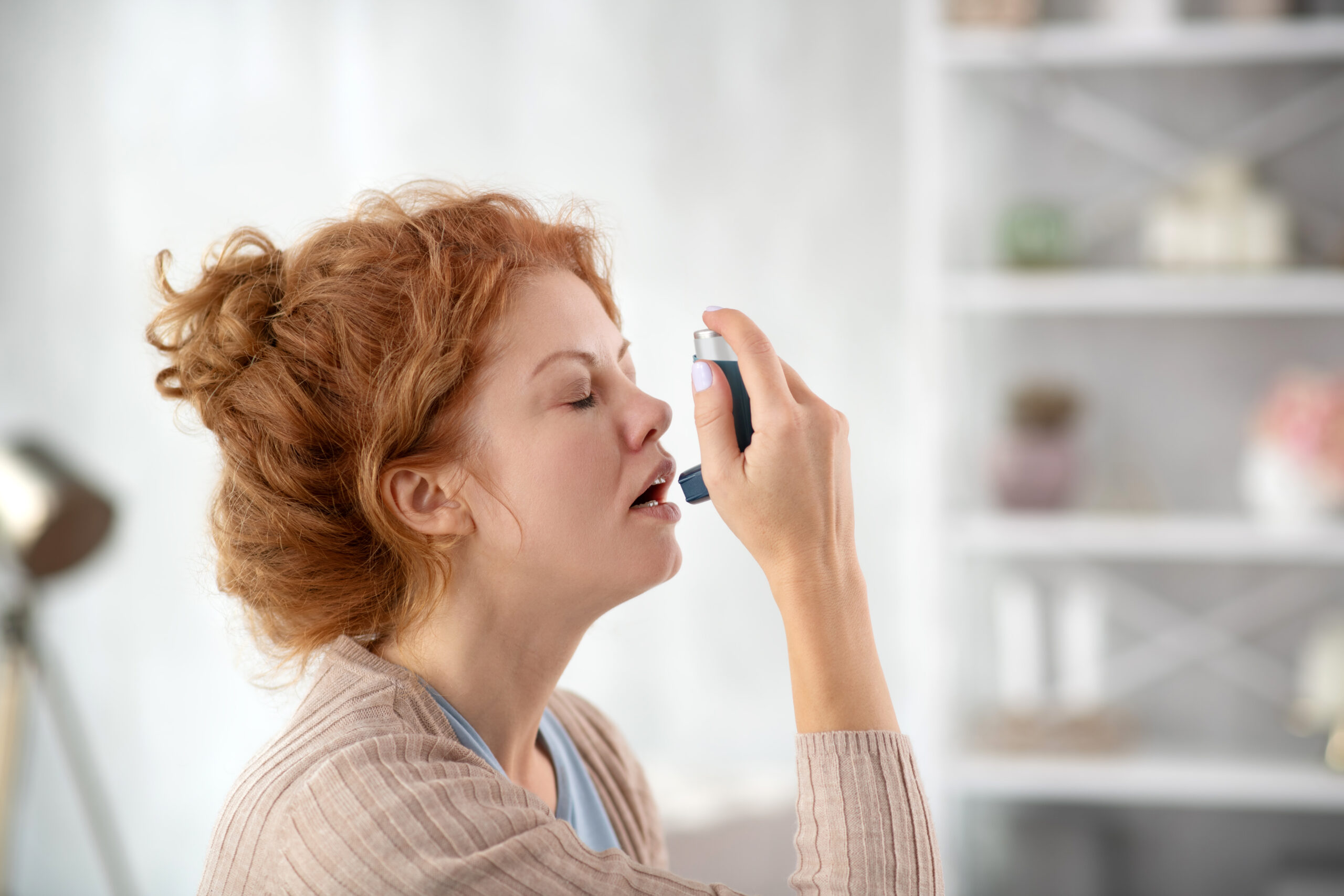Allergy season isn’t just a spring thing. If you’ve been sneezing more than usual, rubbing your itchy eyes, or waking up congested every morning lately, you’re not alone. Here in Tampa, fall doesn’t exactly bring relief for allergy sufferers. In fact, for many, this time of year is just as intense, if not worse. While the rest of the country is starting to cool down and pack away their tissues, Floridians are bracing for another long stretch of runny noses and sinus pressure, and there’s a reason for that. In September, Tampa’s unique climate and environment combine forces to keep allergens alive and active, creating one of the most challenging seasons for those with allergies.
What Makes Fall Allergy Season So Intense in Tampa
Florida’s warm, humid climate isn’t just a paradise for vacationers. It also provides the perfect environment for allergens to thrive. Unlike northern states where pollen levels taper off quickly in autumn, Tampa has an extended growing season. That means the triggers don’t fade away. They linger.
Ragweed is one of the biggest offenders during this time of year. It typically starts releasing pollen in August and doesn’t let up until November. And the numbers are staggering. A single ragweed plant can produce up to a billion pollen grains. Even if you’re not close to a field or heavily wooded area, ragweed pollen travels easily on the wind. That means no neighborhood in Tampa is truly safe from it.
On top of that, we deal with mold spores, which flourish in warm, damp conditions. Fallen leaves, mulch, and moisture from afternoon rainstorms give mold the exact habitat it needs to spread. You may not see it, but it’s likely in the air around your home, on your patio, and even inside your air conditioning vents.
Here’s what’s hitting you hardest right now
Let’s break it down by the most aggressive seasonal triggers currently causing problems across Tampa:
Ragweed pollen
- Peaks in September and October
- Found across lawns, roadsides, and open fields
- Wind-dispersed and nearly impossible to avoid
Mold spores
- Thrive in decaying leaves, grass, and outdoor moisture
- Present in both indoor and outdoor environments
- Aggravated by recent humidity and rainfall
Grass pollen
- Unlike other areas, grasses remain active through Florida’s fall
- Bahia and Bermuda are common irritants
Dust mites
- Not just a spring problem
- Increased indoor time in fall means more exposure to household allergens
Pet dander
- Aggravated as people and pets spend more time indoors
- Often clings to clothes, furniture, and HVAC filters
Mold Thrives When the Weather Won’t Cool Down
Florida’s version of fall doesn’t bring the crisp air you might expect. The humidity sticks around, and so does the moisture. While northern states start to dry out by October, we still see consistent rains and steamy afternoons. That’s a recipe for mold growth. Mold spores love organic material and water. Piles of leaves, tree bark, garden mulch, and even poorly ventilated attics become mold hot zones. Since these spores are airborne, they’re easily inhaled and often go unnoticed until you’re coughing, wheezing, or reaching for your inhaler. And if you have asthma, mold is more than just an irritant. It can become a serious trigger that brings on coughing fits, chest tightness, and even emergency room visits.
Ragweed is the Invisible Enemy
If there’s one villain behind the scenes this time of year, it’s ragweed. It’s nearly impossible to avoid in Florida during the fall months. You won’t see it, but you’ll definitely feel it. That persistent scratch in your throat, the endless sneezing fits, the swollen eyes, all of it could trace back to this one pesky plant. Even if you mow your lawn, maintain your landscaping, and keep windows closed, ragweed’s microscopic pollen grains travel for miles. With Tampa’s breezy days and open green spaces, the pollen ends up everywhere, on your car, your clothes, and inside your house. Ragweed season in Tampa usually peaks in mid-September. That’s why you’re probably noticing your symptoms flaring up right now.
The Longer Growing Season Makes Everything Worse
In most parts of the country, the first frost helps shut down allergy season. But in Florida? That frost rarely shows up. The prolonged heat keeps grass and weed pollen going strong, extending your misery by several more weeks. It’s not uncommon for fall allergies in Tampa to last well into November or even early December. This prolonged season also means your immune system stays on high alert longer, increasing the risk of chronic symptoms. What starts as seasonal sniffles can become sinus infections, lingering coughs, and year-round fatigue.
Why you’re still sneezing indoors
You might think that staying inside is the answer, but that’s not always the case. Indoor allergens can be just as intense, especially during the fall. When we close up our homes to keep out pollen, we often trap indoor triggers like:
- Dust mites in carpets, furniture, and bedding
- Pet dander from your furry companions
- Mold in air ducts and damp areas like laundry rooms or bathrooms
- Cockroach droppings, especially in urban settings or multi-unit buildings
Tampa’s warm weather encourages indoor mold and pests to stick around even when the air conditioning is on full blast. If you haven’t had your HVAC filters changed or ducts cleaned in a while, now might be the time.
How Do You Know it’s Allergies and Not a Cold?
With symptoms like a runny nose, congestion, and coughing, it’s easy to assume you’ve caught something contagious. But there are a few clues that point toward allergies instead of illness:
- Your symptoms persist longer than a week or two
- You don’t have a fever
- Your eyes are itchy and watery
- You notice patterns, like symptoms getting worse after being outside or cleaning
If you’re unsure, it’s always smart to check in with an asthma specialist. A proper diagnosis is the first step toward real relief.
What You Can Do to Feel Better Right Now
We know how frustrating it is to feel like there’s no escape from your allergies. But there are steps you can take to lessen the impact, even while ragweed and mold continue to stir up trouble outside. Here are a few practical tips to get started:
- Shower and change clothes after being outside, especially during peak pollen times
- Keep windows closed, especially in the morning when pollen counts are highest
- Use high-efficiency filters in your HVAC system and replace them monthly
- Vacuum and dust regularly, ideally with a HEPA-filtered vacuum
- Run a dehumidifier in damp rooms to control indoor mold
- Rinse sinuses with saline spray to flush out allergens
Don’t forget about your car because pollen collects there too. Make sure to run the A/C with the recirculate setting and keep the interior clean.
When Lifestyle Changes Aren’t Enough
Sometimes, no matter how careful you are, allergies still get the upper hand. That’s when personalized treatment really makes the difference. At Kratz Allergy & Asthma, we take the time to figure out exactly what’s triggering your symptoms and help you build a treatment plan that fits your life. Whether it’s allergy testing, immunotherapy, or medication adjustments, there are options that go beyond over-the-counter sprays and pills. You don’t have to just suffer through Tampa’s never-ending allergy season.
Helping Tampa Breathe Easier Since Day One
At Kratz Allergy & Asthma, we know exactly what our Tampa neighbors are up against. With offices in Port Richey and Spring Hill, we’ve been treating fall allergies for decades. Our team is led by board-certified allergists who specialize in everything from seasonal allergies and asthma to immune disorders. Our treatments are always tailored to your lifestyle and symptoms. Whether you need a full allergy work-up, support for your child’s asthma, or relief from year-round congestion, we’re here to help. Our clinics are designed to be stress-free, efficient, and focused on real results, not just temporary fixes.
Let’s Take the Next Step Toward Relief
You don’t need to spend another month battling itchy eyes, sinus pressure, or constant sneezing. Fall allergies in Tampa are real, and they’re tough, but they’re also manageable with the right care and guidance. If you’re ready to stop guessing and start breathing easier, we’re here to help. Book an appointment today at Kratz Allergy & Asthma and get the support you need to take control of your symptoms. Whether you’re in Port Richey, Spring Hill, or anywhere in the Tampa Bay area, we’re just a short drive away and your relief is closer than you think. Let’s help you breathe easy again.


